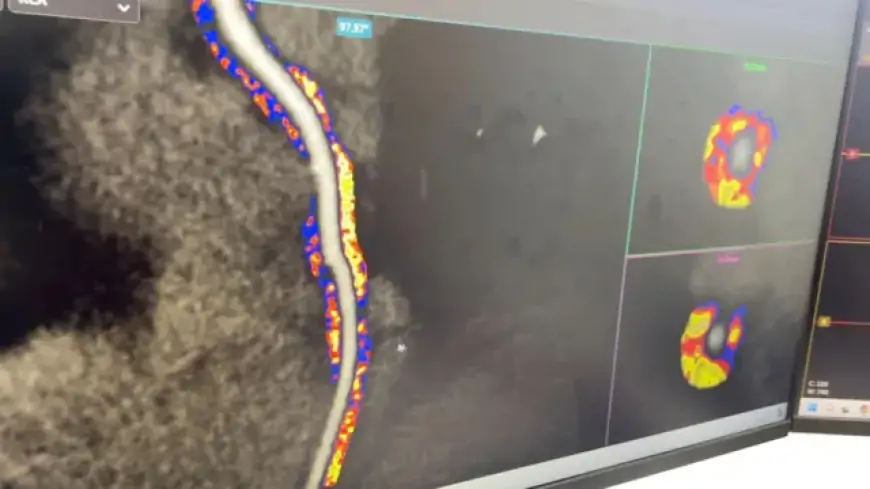UK researchers develop AI model to uncover hidden heart risk factors
Discover how CaRi-Heart's AI and other innovations are revolutionizing healthcare with early detection of heart conditions and improving patient outcomes.

Researchers in the UK have introduced a groundbreaking AI model designed to pinpoint individuals who may be at risk of a heart attack in the next ten years. Developed by Caristo Diagnostics, an Oxford University spinout, this advanced AI technology can identify heart inflammation that conventional CT scans might miss.
Currently, the AI model is undergoing trials at five NHS hospital trusts located in Oxford, Milton Keynes, Leicester, Liverpool, and Wolverhampton. A decision on its wider adoption within the NHS is anticipated in the near future.
This innovative approach offers a promising advance in cardiovascular health by enhancing early detection of potentially serious conditions, which could lead to more timely and effective interventions. By incorporating this technology into routine screenings, healthcare providers hope to significantly reduce the incidence of heart attacks and improve patient outcomes.
Overcoming challenges and enhancing capabilities
The newly introduced CaRi-Heart platform is a cutting-edge AI model designed to analyze routine CT scans for detecting coronary inflammation and plaque. This innovative technology provides a new level of diagnostic insight that traditional methods cannot match.
Professor Keith Channon from the University of Oxford hailed the technology as “transformative and game-changing.” He noted that it can uncover biological processes not visible to the human eye, which can precede the formation of heart blockages.
The effectiveness of this technology is supported by the ORFAN study, which included 40,000 patients and was published in The Lancet. The research found that patients who were returned to primary care without a clear prevention or treatment plan, but who had coronary inflammation, faced a 20 to 30 times higher risk of dying from a cardiac event.
With the AI tool's assistance, 45% of these high-risk patients were able to receive medication or lifestyle recommendations aimed at preventing future heart attacks. Despite this, the National Institute for Health and Care Excellence is still assessing the technology's implementation across the NHS.
Already approved in Europe and Australia, the CaRi-Heart platform is also under review in the United States. Its ability to uncover hidden risks represents a major leap forward in personalized medicine, with the potential to prevent thousands of heart attack deaths annually in the UK. As its adoption grows, it promises to enhance early detection and intervention, ultimately saving many lives.
AI's impact on healthcare and future developments
The introduction of CaRi-Heart AI technology is part of a broader movement toward integrating sophisticated AI tools into healthcare. For instance, in early April, the FDA granted approval to Eko Health’s AI-embedded stethoscope for the early detection of heart failure (HF) during routine checkups. Developed in collaboration with the Mayo Clinic, this AI tool can identify low ejection fraction (Low EF), a critical marker of HF, in just 15 seconds. This is especially relevant given the high incidence of heart failure with reduced ejection fraction (HFrEF) in the US, which compromises the heart’s ability to pump blood effectively.
Moreover, research presented at the American Heart Association’s Scientific Sessions in November 2023 highlighted AI’s effectiveness in diagnosing peripartum cardiomyopathy. In a study involving nearly 1,200 Nigerian women during pregnancy or postpartum, AI-enhanced digital stethoscopes identified twice as many cases as standard clinical ECGs and routine obstetric care.
These advancements underscore the growing role of AI in enhancing early diagnosis and treatment, offering significant improvements in patient care and outcomes. As AI technology continues to evolve, its applications in healthcare are expected to expand, bringing further innovations and potential benefits to the field.












































